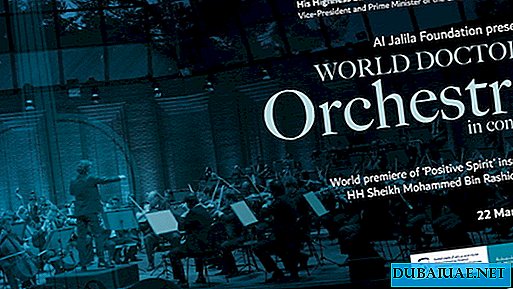 NAME OF THE GEORGIAN SINGER NINO KATAMADZE TODAY, PLEASE KNOW EVERYBODY WHO LOVES AND appreciates GOOD MUSIC. Despite the fact that she sings in her native language, her songs are known to listeners all over the world. On the eve of our one and only concert in Dubai on May 6, we talked with Nino about forgotten truths, inner freedom and, of course, about jazz emotions.
NAME OF THE GEORGIAN SINGER NINO KATAMADZE TODAY, PLEASE KNOW EVERYBODY WHO LOVES AND appreciates GOOD MUSIC. Despite the fact that she sings in her native language, her songs are known to listeners all over the world. On the eve of our one and only concert in Dubai on May 6, we talked with Nino about forgotten truths, inner freedom and, of course, about jazz emotions. Interviewed by Irina Malkova
Nino, tell us, what influenced the formation of your taste the most?
Nino: I was born near the sea and lived in the mountains. My horizon is the sea, sunset, mountains, fireflies and stars. This is my jazz. Absolutely everyone sang in the house, this is a Georgian tradition. In addition, the village where I grew up was half Greek, and the Georgians studied at the Georgian department of the school, and the Greeks studied in Russian. And we constantly heard Greek speech. Everything was so intertwined that it could not but affect my work.
Your style is often characterized as "smart music for connoisseurs of serious art." How could you describe it yourself?
Nino: I’ll probably say right away that our music is not jazz in its purest form, we just have such freedom as in jazz. And my free breath in music is from the place where I was born. It was very lucky to meet the musicians from the Insight band. Our joint style was somehow formed by itself, we didn’t invent anything on purpose — we just wanted to preserve what spontaneously appeared in our work.
There is an unwritten law in the world of music: the experimental musician turns to jazz while in a spiritual quest. The more you improvise, the more clearly you realize your own aspirations not imposed by society. Where are your aspirations directed?
Nino: For me, the attitude to my music is through gratitude. Not through notes and through harmony, although sometimes I lack harmony. But I can’t find her in books or elsewhere, so I'm looking for her in communication with the audience. I must constantly communicate with them and understand what feelings I send to them through my songs. I have to listen to them and understand when it hurts, and when it's good.
The best music for you?
Nino: I listen to a lot of jazz, rock and world-music, but I also listen to classical music. I deeply respect the work of each artist and believe that this particular musical project has its own audience, its own listener. I go to concerts of friends and acquaintances with pleasure - I buy tickets like an ordinary spectator, I purchase music disks on my own - even if I can get them as a gift.
Many argue that you need to see, because if you only listen, you cannot fully understand. You talk with the audience using gestures and plastic and return to the jazz tradition of combining song and dance.
Nino: Random people don’t come to our concerts - they know where they are going. And our audience is amazing - intellectual, sincere, of different ages. He subtly feels falsehood, destroying all the bright feelings, to which we are so anxious and which we multiply. Therefore, one must always be honest with the audience.
"Black", "White", "Red", "Blue", "Green" - that's what you name your albums. What color is your life painted at the moment?
Nino: I swear I don't know! When we wrote the last one, green, one of the musicians suggested changing the name to "ultra-white." All other members of the group were indignant: shame on you, we recorded it for several months as green! The fact is that we are discussing in advance which songs will be included in the record, and usually color looms from them. I can tell you for sure that now it’s not ultraviolet - it’s not our condition. There is nothing yet, not even new entries. You need to relax and think a little. Or maybe we will no longer call the album by color.
One of your most beautiful songs that you can listen to many times in a row is Olei. What is she talking about?
Nino: Let's say the word Olei means nothing. This is not even a word, but a feeling. I just got up one morning and exhaled: "Olei ..."
Jazz is called "music of freedom." Where for you personally is the line between inner freedom and inner slavery?
Nino: Improvisation helps me to believe in myself and in my abilities. Each time, improvising, I get a new experience and become freer. In general, freedom, in my understanding, is a desire for love. This is the most important quality of the soul of a person who is trying to go where the light is. And by the way, the love that I received as a child gave me a sense of freedom and the ability to love myself. I think that I was not so much shaped by the environment as people: every person that I met in my life. Neighbors, family, people with whom I studied, all of them, drop by drop, filled my soul. From their recognition, love and trust, I became what I am.
Do you have a favorite jazz festival where you like to perform most of all?
Nino: Each jazz festival has its own character. But I love ethnic festivals, for example, Artgeni, which is held in the month of July in Tbilisi, it is organized by my friends. All the originality of Georgia, its openness is a meeting with our grandparents, from whom only kindness and love always emanate. Such, in my understanding, is the life of a simple person.
Tell me, is your childhood Georgia and today's Georgia different?
Nino: If you come to Georgia, you will see that many have large houses here. They were not built so out of greed. It's just that in these houses the biggest room is the guest room. People work all their life, invest and build a house so that guests come there. And the way they set the table and what they treat is always done with the soul! The problem is that we are now lazy. We live in the city because there is more money and because the city feeds. No need to cultivate land, feed turkeys, raise children: you just go to work, your child goes to kindergarten or school. We live without knowing the earth, without smelling, not hearing birds. We give up humanity. All the time we think only about work, we turn into robots and lose ourselves. And here is what I noticed: the people who once communicated or communicate with the earth are completely different.
And what is the main driving motive of your life?
Nino: The most amazing thing is the creative process, its constancy and continuity. After all, we are constantly evolving and moving forward. And for me, music is not just a driving motive, it is life itself.












